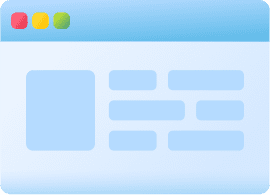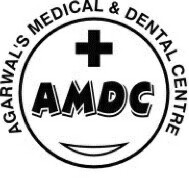
This is your website preview.
Currently it only shows your basic business info. Start adding relevant business details such as description, images and products or services to gain your customers attention by using Boost 360 android app / iOS App / web portal.
Hypertension (High BP) management
Hypertension, or high blood pressure (BP), is a common medical condition where the force of the blood against the walls of the arteries is consistently too high. If left untreated, hypertension can lead to serious health problems, including heart disease, stroke, and kidney damage. Here's an overview of hypertension, including causes, symptoms, diagnosis, and management: Causes and Risk Factors: Primary Hypertension: This is the most common type, and its exact cause is often unclear. It tends to develop gradually over time. Secondary Hypertension: Resulting from an underlying condition, such as kidney disease, hormonal disorders, or certain medications. Risk Factors: Age, family history, being overweight or obese, lack of physical activity, excessive salt intake, excessive alcohol consumption, smoking, stress, and certain chronic conditions (e.g., diabetes) are risk factors for hypertension. Symptoms: Hypertension is often referred to as a "silent killer" because it may not cause noticeable symptoms in its early stages. Some people may experience symptoms such as headaches, shortness of breath, or nosebleeds, but these symptoms are not specific to hypertension and can occur for various reasons. Diagnosis: Blood Pressure Measurement: Blood pressure is measured using two values: systolic pressure (the pressure when the heart beats) and diastolic pressure (the pressure when the heart is at rest between beats). Normal blood pressure is typically around 120/80 mm Hg. Hypertension Stages: Stages of hypertension are defined based on blood pressure measurements. The stages include elevated blood pressure, stage 1 hypertension, and stage 2 hypertension. Management and Treatment: Lifestyle Modifications: Adopt a heart-healthy diet rich in fruits, vegetables, whole grains, and lean proteins. Reduce sodium intake. Engage in regular physical activity. Maintain a healthy weight. Limit alcohol consumption. Quit smoking. Medications: Antihypertensive medications may be prescribed if lifestyle modifications alone are insufficient. Common classes of medications include diuretics, ACE inhibitors, angiotensin II receptor blockers (ARBs), beta-blockers, calcium channel blockers, and others. Regular Monitoring: Regular blood pressure monitoring is crucial to track progress and adjust treatment plans if needed. Patient Education: Educate individuals about the importance of adherence to medications, lifestyle modifications, and long-term management of hypertension. Management of Coexisting Conditions: Address and manage other health conditions, such as diabetes, that may contribute to hypertension. Regular Checkups: Schedule regular checkups with healthcare providers to assess blood pressure levels and overall cardiovascular health. Stress Management: Incorporate stress-reducing activities such as mindfulness, meditation, or yoga.
We Provide Best Medical Service
Online appointment booking is not available right now.
Appointment Confirmed
Your appointment ID is
| Doctor Name: | |
| Date & Time: | |
| Contact: | +918048052859 |
| Address: | F-01/02, Gokul Heaven, Thakur Complex, Kandivali East, Mumbai - 400101 |
| Appointment fee: | |
| Payment mode: | |
| Join video call at: |
Thanks for choosing us.Your appointment details has been shared on your mobile number as well. Please arrive atleast 10 minutes ahead of the scheduled time.
Success
